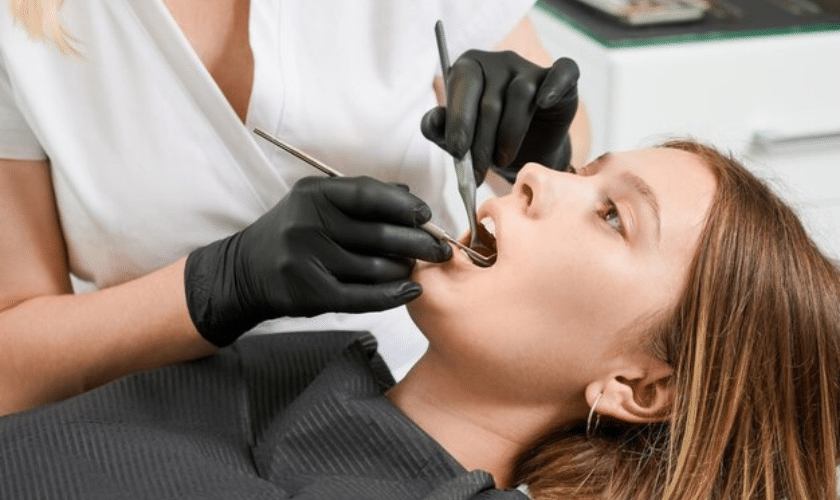Imagine this scenario: you’ve been told you need a root canal treatment and a dental crown. The thought of multiple appointments and the waiting time for a crown to be created can be daunting. However, advancements in dental technology and procedures have paved the way for same-day solutions. In this blog, we delve into the intriguing prospect of undergoing a root canal and receiving a dental crown in just one day.
The Basics of Root Canal Treatment
Unraveling the Myths
Root canal treatment often carries an air of dread, surrounded by misconceptions and myths. Contrary to popular belief, a root canal is not a painful ordeal but a dental procedure designed to alleviate pain caused by infected or damaged pulp inside the tooth. The treatment involves cleaning and disinfecting the affected area before sealing it to prevent further infection.
Root canal treatments are commonly associated with multiple visits, with the final step being the placement of a dental crown. However, advancements in technology and dental practices have transformed this process.
Same-Day Root Canal and Dental Crown
A Revolutionary Approach
Traditionally, getting a dental crown following a root canal involved taking impressions of the tooth, sending them to a dental lab, and waiting for the crown to be manufactured. This process spanned over several days, sometimes weeks. However, same-day solutions have revolutionized the experience.
Advanced Technology at Play
Thanks to innovations like CAD/CAM (Computer-Aided Design/Computer-Aided Manufacturing), dentists can now create crowns in their offices. This technology allows for the digital scanning of the tooth, creating a virtual model, and milling a crown from high-quality materials – all within a matter of hours.
Streamlined Workflow
The integration of these technological advancements into dental practices has streamlined the workflow. Now, it’s possible to undergo a root canal and leave the office with a custom-made dental crown on the same day.
The Same-Day Process
Step by Step
- Diagnostic Assessment: Before determining if a same-day procedure is suitable, a comprehensive diagnostic assessment is conducted to evaluate the condition of the tooth.
- Root Canal Treatment: If a root canal is deemed necessary, the procedure is performed efficiently to address the underlying issues causing discomfort.
- Digital Impression: Utilizing cutting-edge technology, a digital impression of the treated tooth is taken, eliminating the need for traditional, messy molds.
- CAD/CAM Technology: The digital impression guides the CAD/CAM system in creating a precise and customized dental crown from high-quality materials.
- Immediate Placement: Once the crown is ready, it is immediately placed on the treated tooth, ensuring a snug fit and restoring both functionality and aesthetics.
Advantages of Same-Day Solutions
Beyond Convenience
- Time-Efficient: The most apparent advantage is the time saved. No more waiting for days or weeks with a temporary crown – you leave the dental office with a permanent solution.
- Single Appointment: Same-day solutions reduce the number of appointments, sparing patients from multiple visits to the dentist.
- Minimized Discomfort: With a streamlined process, there is less time for discomfort, allowing patients to resume their daily activities promptly.
Considerations and Eligibility
While same-day solutions offer remarkable benefits, not everyone may be eligible. The complexity of the case, the overall oral health of the patient, and other factors play a role in determining suitability. Consultation with a skilled dentist is crucial to assess whether this approach aligns with individual needs.
Choosing the Right Dentist
When considering same-day solutions for a root canal and dental crown, selecting the right dentist is paramount. Look for a practitioner with experience in utilizing advanced technology and a commitment to providing optimal care.
Personalized Consultation:
A reputable dentist conducts a thorough consultation, discussing the treatment plan, potential alternatives, and expected outcomes. This ensures that patients are well-informed and comfortable with the chosen approach.
Patient-Centric Approach:
A patient-centric approach involves considering the unique needs and preferences of individuals, fostering a positive and collaborative dental experience.
Elevating Oral Healthcare
The prospect of receiving a root canal and dental crown in one day is a testament to the continual evolution of dental practices. Technological advancements have not only made procedures more efficient but have also enhanced the overall patient experience.
If you’re seeking same-day solutions in Oak Park, look as far as your trusted Oak Park Dentist. Embrace the efficiency and convenience of advanced dental care, ensuring a healthier and brighter smile.



